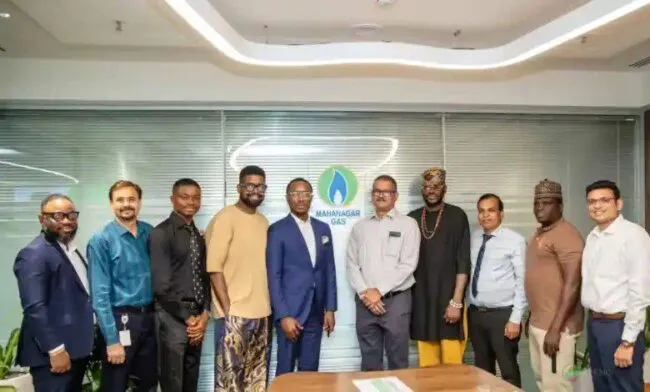The recent initiative by the Nigerian government to send prominent influencers—including music icon 2Face Idibia, lifestyle influencer Ola of Lagos, northern musician Rarara, and comedian Basketmouth—on a fact-finding mission to India to study their Compressed Natural Gas (CNG) adoption is a masterstroke in strategic communication and a testament to the nation’s commitment to a cleaner, more sustainable energy future. This move, while seemingly unconventional, demonstrates a profound understanding of the power of public engagement and the need to build national consensus around critical policy shifts.

For too long, Nigeria’s energy narrative has been dominated by the complexities of oil and the often-opaque machinations of subsidy regimes. President Bola Tinubu’s administration, however, is charting a new course, one that recognizes the immense potential of natural gas and the transformative power of CNG. This journey to India, featuring these influential figures, isn’t merely a publicity stunt; it’s a calculated effort to democratize knowledge and empower Nigerians to become active participants in the nation’s energy transition.
But what exactly is CNG, and why is it so important? Simply put, CNG is natural gas that has been compressed to a smaller volume, making it easier to store and transport. It’s a cleaner-burning alternative to gasoline and diesel, producing significantly fewer greenhouse gas emissions and air pollutants. In a nation grappling with the effects of climate change and air pollution in its bustling cities like Lagos and Kano, the environmental benefits of CNG are undeniable. Think of it as switching from burning firewood in your kitchen to using a clean gas cooker – a significant improvement for your health and the environment.
Beyond the environmental advantages, CNG also offers significant economic benefits. Natural gas is abundant in Nigeria, and utilizing it for transportation and industrial purposes can reduce our reliance on expensive imported fuels. This translates to lower fuel costs for vehicle owners, reduced operating expenses for businesses, and a boost to our national economy. Imagine the “danfo” driver in Lagos saving a substantial amount on fuel each day, or a small business owner in Aba being able to power their operations at a fraction of the cost. This is the potential of CNG.
Now, it’s crucial to address some legitimate concerns. One issue that often arises is the safety of CNG vehicles. The recent incident in Edo State, where a vehicle converted to run on CNG exploded, understandably caused alarm. However, it’s important to understand that such incidents are rare and often attributable to improper conversions or substandard equipment. Just like any fuel, safety protocols must be strictly adhered to. Properly converted CNG vehicles, using certified components and installed by trained professionals, are just as safe, if not safer, than gasoline-powered vehicles. The PCNGI’s focus on engaging reputable companies like Femadec Energy and Rolling Energy demonstrates a commitment to ensuring high standards and safe practices throughout the CNG value chain. Furthermore, the Indian experience, with millions of CNG vehicles on the road, highlights the fact that with proper infrastructure and regulation, CNG is a safe and reliable fuel.
This initiative, with 2Face, Ola of Lagos, Rarara, and Basketmouth at the forefront, is not just about promoting CNG; it’s about building trust. It’s about demonstrating transparency and accountability by allowing Nigerians to witness the potential of CNG for themselves. It’s about dispelling the misinformation and skepticism that often accompany significant policy shifts. By showcasing the real-world impact of CNG in a relatable way, the government is laying the foundation for a national conversation grounded in facts, not fear.
Furthermore, this mission underscores the government’s commitment to learning from global best practices. India’s success in integrating CNG into its transportation and industrial sectors offers a valuable blueprint for Nigeria. By studying India’s experience, Nigeria can avoid potential pitfalls and accelerate its own transition to a gas-powered economy. This proactive approach, coupled with the involvement of Nigerian companies, demonstrates a clear commitment to developing a robust and sustainable CNG value chain within the country.
This initiative is a bold step towards securing Nigeria’s energy future. It’s a recognition that true progress requires not only visionary leadership but also the active participation and informed consent of the people. By empowering Nigerians with knowledge and fostering a sense of ownership in the energy transition, the government is laying the foundation for a more prosperous, sustainable, and energy-independent nation. This is not just about gas; it’s about Nigeria’s future.